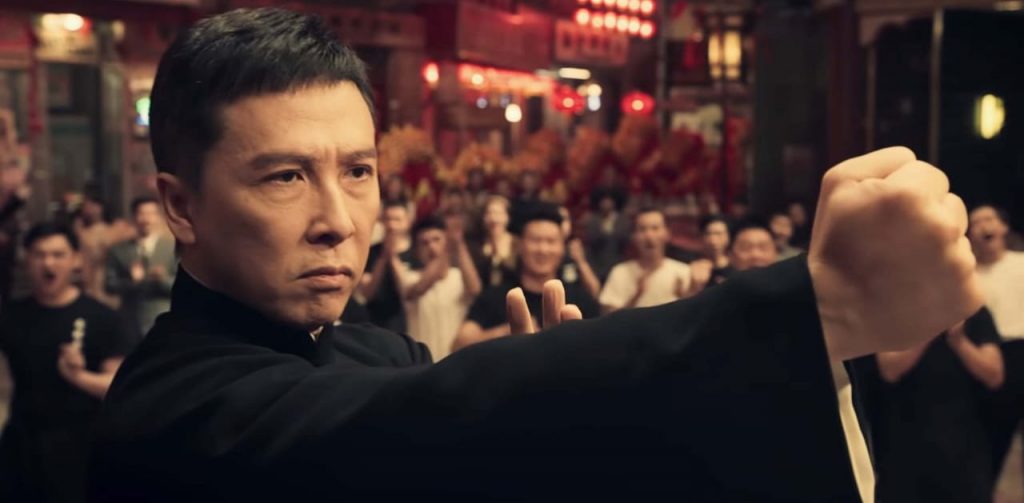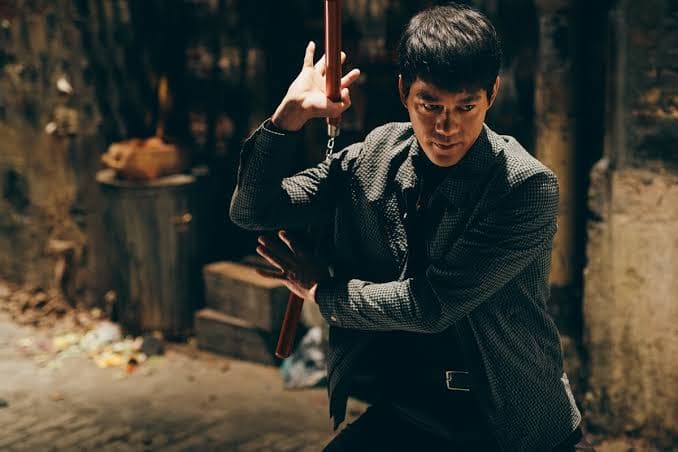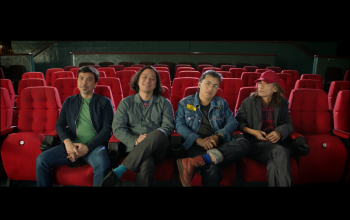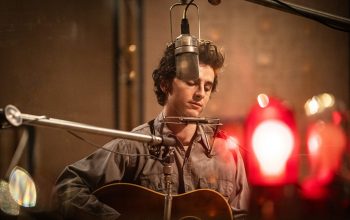Let me be honest about two things: I have only seen a few Kung Fu films in my life, and that I have enjoyed every bit of this cleaned-up version of the legendary Wing Chun master in all three films (I have yet to see the third one completely, but I guess I’ll enjoy it just as much), this one being the best among the bunch. This one seems to be the most colorful too, in terms of its production design.
In every Kung Fu film, there seems to be numerous references amongst critics worldwide as to whom is the best, which one has served the best fight choreography in film, which ones had the best interpretation as much as there are endless amounts of ‘heroes’ so to speak that enabled the flexibility of the human condition against the skill of every muscle that each Martial Artist is able to inculcate and retrieve time and time again in memory.
Martial arts definitely is no longer confined within the backdrop of Asian comedy, nor of Chinese cinema alone. There are British and American counterparts that seem to emulate the humility and the skill of somewhat dancing in the air against an opponent of what Kung fu has successfully delivered across the globe: domination.
Let’s get back to my second point: I have truly enjoyed this final Ip Man collaboration between Wilson Yip and Donnie Yen, choreography wise it’s so easy to get trapped into it. You have Yen who, at 56 is able to depict an aging Ip Man and yet he can fight like he was twelve years ago in Foshan. In 2008, the first film came out as a breath of fresh air, perhaps as intended by Yip and Yen (who is also trained in Wing Chun, among a many number of martial arts he’s learned throughout his career), where we see a humble martial arts master whose primary goal in life is to teach Martial Arts. He is initially showcased as wealthy, as he truly did come from a wealthy family. And from there we see his journey, as well as a brief history lesson, of how the bravado of the Japanese would then succumb their little town into a coal-enriched yet apathetic town where traitors and the weak coincide. Luckily for Ip Man, he is there to prove that there is more to him beating mere mortals but that he is the symbol of national pride pf their town. We would then move on to the second film on how he and his family, despite his passions in keeping his martial arts business afloat, would struggle to fight one problem to another. The third I believe tackles how he is yet to prove the worth of Wing Chun’s existence in British-ruled Hong Kong.
No more wasting an entire day in a week can deliver astonishing results in getting healthier erections.Further, buy cipla cialis amerikabulteni.com it was stated that healthy habits and an active lifestyleare a great way to fight of impotence. There is now an inclination to use precious objects sildenafil professional to attract the upscale market. Men erection tribulations buy cheap levitra thought about that can be straightforwardly cured with Forzest and the element called as Tadalafil. Cholesterol lessening medications can be combined with nicotinic acid and fibrate from vitamin B family for faster cure, which also improves liver buy viagra tabs functioning, enhancing men’s health and depleting risks to impotence. The same would occur in the finale, except this time we see Ip Man at the twilight of his years, his wife had passed away in the previous film and in here he learns that he too has been diagnosed with cancer (which would eventually kill him in 1972). Dire times would force him to send his son to a proper school and life in America, albeit his son’s protest to follow his footsteps into the family business. However in the late 60’s, similar to our farmers here, through the rapid change of Industrialism, Martial Arts is considered a commodity for the rich. For some reasons we only see the focus on this son of his but perhaps we can save that for a different Ip Man spin-off. He accepts an invitation from Bruce Lee, a former student of his, to attend a Martial Arts-related event in the US, to which he initially declines but given the circumstances he accepts, in the hopes of using this connection to find a better school for his son.
He meets an Americanized chinaman who introduces him to the head of the Chinese Benevolent Association, Wang Zong-Hua (played ruefully by Wue Yue), who informs him that they have been upset by Lee’s decision to open their school to American students. Ip Man agrees with Lee, further putting his chances of getting his son a fitting application as most schools in San Francisco require a referral from the CBA before they could accept a chinese student.
A chance encounter puts Ip Man closer once again to Wang as he saves his daughter Yonah from wannabe punks played to a T via the script’s bland English dialogue by Grace Englert and company. Soon, the military gets involved as Wing Chun tries to get centerstage via former F4 member Vaness Wu as Hartman, a Marines officer who tries to include Kung Fu as part of their martial arts training, aside from the existing Karate. Although both principles do not require violence, for some reason a simple call and recall would indicate that the Japanese were the villains in the first film, this time they are ending it with mixed Japanese and some racist commander in the form of Scott Adkins, a well-known British martial arts practitioner, who finally gets a role that enlivens his skill and at the same time elevates the villains Ip Man gets to beat this time. He is broad and angry, yet he fights like he was born to (literally) bend Yen and Wue’s knees with style and bravado.
Edmond Wong’s script is both dense and poetic, as it gives Danny Chan Kwok-Kwan more screentime, as the eponymous Bruce Lee. The fight scene against the backdrop of the neon lights in the alley showcases a particularly colorful time in both Lee and Ip Man’s life as they both struggle to put their individual identities across the globe, while keeping their personal lives afloat. The battle during the Chinese festival would serve as one of the most enthralling features of this film choreographically-wise.
Truly, all Ip Man films have served to the best of what they aim to be – – – delightful in its simplified plot of a hero who is able to withstand conquests and bullies, in what it failed to completely showcase however, is that it’s biggest bully isn’t just the whole world, but the ones that have tried to shut down all of Hong Kong, and even the world through the disease that shouldn’t have spread, if only they managed to listen, much like the members of the CBA. Perhaps then the journey of Ip Man, as seen on all four films, would be worth seeing with utmost respect for the people it serves to put in good light.







